- Two Thanksgiving Thoughts for the ACAPosted 10 years ago
- Shop til you Drop at the Healthcare Marketplace Part 2: Frustration!Posted 10 years ago
- An Early Casualty in the Affordable Care FightPosted 10 years ago
- Some Good News for a ChangePosted 10 years ago
A Case for the Professional Juror
I met the guy who runs this website ten years ago when we sat on the same jury in Los Angeles for a civil suit. Here are the elements of that trial:
-A guy started a computer distribution company.
-He got a line of credit from a bigger distributor (“the plaintiff” going forward).
-He purchased $300,000 worth of computers from the plaintiff.
-He skipped the country (“the skipper” going forward) without paying the $300,000 to the plaintiff.
-The skipper was Eastern European, possibly Russian (not relevant).
-The skipper was mentored by the defendant (“the con man” going forward), who was also Eastern European, possibly Russian (again, not relevant).
-The plaintiff was suing the con man for the $300,000.
 If the con man was a co-signer on the credit agreement between the skipper and the plaintiff, he was legally obligated for any debts and the trial would have been unnecessary. A binding contract should be exactly that; legally binding. As significant a factor as that should have been to the case, I don’t remember if he had a legal obligation or not. It’s been ten years. When you get to the end of this anecdote, you’ll understand why it’s justifiable I would block out any part of that trial experience.
If the con man was a co-signer on the credit agreement between the skipper and the plaintiff, he was legally obligated for any debts and the trial would have been unnecessary. A binding contract should be exactly that; legally binding. As significant a factor as that should have been to the case, I don’t remember if he had a legal obligation or not. It’s been ten years. When you get to the end of this anecdote, you’ll understand why it’s justifiable I would block out any part of that trial experience.
The trial went on about a week. In looking at the case’s elements as I present them, the scenario may seem obvious but it wasn’t during the course of the trial. When you’re on a jury, you’re not supposed to talk about a trial while it’s in progress but every day we all commented to each other that we had no idea what was going on. It was presented to us that poorly. If I prosecuted the case myself it would have been over in a day or two because I would have repeatedly emphasized one very decisive fact which, again, wasn’t obvious to me until the very end of the trial when I stepped away from the proceedings and thought it out.
 When the attorneys were through presenting and it was time to deliberate, none of us jury members felt any closer to understanding the case than we did at the beginning. I know that sounds impossible but, again, that’s just how nonexistent the prosecution’s case was. When the jury members were trying to talk out what had transpired in the hopes of attaining an understanding of the evidence to give us grounds for our decisions, we gravitated into different groups that conversed among themselves. On my side of the table were some of the juror’s Mexican-Americans (“M-As” going forward), who were nice people but none were college educated or, and I don’t want to sound mean, deep thinkers.
When the attorneys were through presenting and it was time to deliberate, none of us jury members felt any closer to understanding the case than we did at the beginning. I know that sounds impossible but, again, that’s just how nonexistent the prosecution’s case was. When the jury members were trying to talk out what had transpired in the hopes of attaining an understanding of the evidence to give us grounds for our decisions, we gravitated into different groups that conversed among themselves. On my side of the table were some of the juror’s Mexican-Americans (“M-As” going forward), who were nice people but none were college educated or, and I don’t want to sound mean, deep thinkers.  There’s a lot to be said for uncomplicated people on any level. While the other side of the table talked about the trial, the M-As complained that either they or people they knew had been racially profiled. I tried to get them to show an interest in the case but they simply didn’t care, even though that was the only reason we were there. Out of nowhere, it all came to me like a lightning bolt or light bulb going off in my head, whichever works better for you. The skipper and the con man set
There’s a lot to be said for uncomplicated people on any level. While the other side of the table talked about the trial, the M-As complained that either they or people they knew had been racially profiled. I tried to get them to show an interest in the case but they simply didn’t care, even though that was the only reason we were there. Out of nowhere, it all came to me like a lightning bolt or light bulb going off in my head, whichever works better for you. The skipper and the con man set  this up from the very beginning: They would purchase goods on the establishment’s credit, the skipper would vanish, leaving the con man with hundreds of thousands of dollars of equipment he could easily sell at a discounted price. It was all profit since they had no intention of paying the duped supplier. The fact they might have been Russian may not be relevant.
this up from the very beginning: They would purchase goods on the establishment’s credit, the skipper would vanish, leaving the con man with hundreds of thousands of dollars of equipment he could easily sell at a discounted price. It was all profit since they had no intention of paying the duped supplier. The fact they might have been Russian may not be relevant.
During the course of the trial, the con man repeatedly said the skipper  was “like my own son.” That’s what turned it for me and the comment was all but an admission of guilt and conspiracy, based on everything else we heard. On its own and had he not repeated it, it would not have been as significant. The others on the jury had no idea what I was talking about and I felt as though I was speaking a different language, which I just now realized I was. That language is called “Thought and Reason.” Because my being in the movie industry made me interesting to the entire courtroom during jury selection, it made sense
was “like my own son.” That’s what turned it for me and the comment was all but an admission of guilt and conspiracy, based on everything else we heard. On its own and had he not repeated it, it would not have been as significant. The others on the jury had no idea what I was talking about and I felt as though I was speaking a different language, which I just now realized I was. That language is called “Thought and Reason.” Because my being in the movie industry made me interesting to the entire courtroom during jury selection, it made sense  for me to use a movie analogy to make my point. I used the scenes in Martin Scorsese’s 1990 film “Goodfellas”, where the mobsters take over a restaurant and force the owner to make purchases that utilize the credit lines with his suppliers. The mobsters then sell the purchased supplies at a big discount, allowing them to quickly disseminate the merchandise and get the cash, which was all profit because they had no intention of paying the suppliers. They make the owner take out an insurance policy then they burn down the restaurant. The insurance takes care of everything and they’re off the hook.
for me to use a movie analogy to make my point. I used the scenes in Martin Scorsese’s 1990 film “Goodfellas”, where the mobsters take over a restaurant and force the owner to make purchases that utilize the credit lines with his suppliers. The mobsters then sell the purchased supplies at a big discount, allowing them to quickly disseminate the merchandise and get the cash, which was all profit because they had no intention of paying the suppliers. They make the owner take out an insurance policy then they burn down the restaurant. The insurance takes care of everything and they’re off the hook.
Moving the purchased goods in:
Moving the discounted sold goods out:
Signing the insurance forms:
Lighting the match:
 When I gave the jury members a rapid-fire version of the explanation I just gave you, they laughed, which was frustrating because I wasn’t getting to them. They weren’t making themselves open to what I was saying. As with the cobra anecdote in my review for “Sullivan’s Travels”, what made what I said funny was my delivery. In the cobra scenario, had I not had my delivery, the moment would have been stressful and awkward, no one would have laughed, and I would have been fired. This time that delivery worked against me and I wasn’t looking for a laugh. That’s a rare occurrence for me.
When I gave the jury members a rapid-fire version of the explanation I just gave you, they laughed, which was frustrating because I wasn’t getting to them. They weren’t making themselves open to what I was saying. As with the cobra anecdote in my review for “Sullivan’s Travels”, what made what I said funny was my delivery. In the cobra scenario, had I not had my delivery, the moment would have been stressful and awkward, no one would have laughed, and I would have been fired. This time that delivery worked against me and I wasn’t looking for a laugh. That’s a rare occurrence for me.
 Being a civil trial, our decision didn’t have to be unanimous; a verdict is decided by a majority vote. We were each given a list of “yes” or “no” questions. Based on our answers to those questions, the verdict would be made. One of the questions was the make-or-break one. It might have been as simple as “did the con man conspire with the skipper to purchase the computers without the intention of ever paying for them?” I don’t remember the specific wording but I do know that was the question where I was alone in my answer. Before we had to return to the courtroom and, understanding exactly what had happened,
Being a civil trial, our decision didn’t have to be unanimous; a verdict is decided by a majority vote. We were each given a list of “yes” or “no” questions. Based on our answers to those questions, the verdict would be made. One of the questions was the make-or-break one. It might have been as simple as “did the con man conspire with the skipper to purchase the computers without the intention of ever paying for them?” I don’t remember the specific wording but I do know that was the question where I was alone in my answer. Before we had to return to the courtroom and, understanding exactly what had happened,  I tried one more time to convince the jury what the right answer was. All the other jurors looked quizzically and with uncertainty at each other. As they all agreed with each other, they all figured that alone made them right. Eleven out of twelve people thought that same flawed way, which is to say they didn’t think things through. That’s called the fallacy of “popularity”, or the belief that something has to be right because more people think in that way than think in another way.
I tried one more time to convince the jury what the right answer was. All the other jurors looked quizzically and with uncertainty at each other. As they all agreed with each other, they all figured that alone made them right. Eleven out of twelve people thought that same flawed way, which is to say they didn’t think things through. That’s called the fallacy of “popularity”, or the belief that something has to be right because more people think in that way than think in another way.  Their consensus vote actually made them confident and comfortable in their decision and that unfounded confidence was obvious when we filed back into the courtroom. I think many were already thinking past the trial and about what they were going to do when we left.
Their consensus vote actually made them confident and comfortable in their decision and that unfounded confidence was obvious when we filed back into the courtroom. I think many were already thinking past the trial and about what they were going to do when we left.
When the foreman confidently read the majority decision to the court, everyone in the courtroom reacted with shock, which in itself was jarring and I could feel how immediately shaken the rest of the jury was. It was  that palpable. My immediate reaction was more fury than vindication. I really tried and we failed anyway. A winning effort is wasted on a losing team. The prosecutor and the plaintiff, who were also justifiably and extremely disappointed, were the most shocked. After partially regaining his composure, the prosecutor said very loudly, “I can’t believe this!” Then he asked the judge if each jury member would divulge, one by one, his/her response to that one decisive question. You could barely hear the other justifiably embarrassed jurors squeak out their now obviously
that palpable. My immediate reaction was more fury than vindication. I really tried and we failed anyway. A winning effort is wasted on a losing team. The prosecutor and the plaintiff, who were also justifiably and extremely disappointed, were the most shocked. After partially regaining his composure, the prosecutor said very loudly, “I can’t believe this!” Then he asked the judge if each jury member would divulge, one by one, his/her response to that one decisive question. You could barely hear the other justifiably embarrassed jurors squeak out their now obviously  wrong responses. When it was my turn, I boomed my response so loud it echoed throughout the courtroom. That’s how pissed off I was and I was thankful I got the opportunity to separate myself from the eleven other jurors and vent my frustration. The entire courtroom was dizzy in how much in disbelief everyone was, including the con man. I was mentally in the starting blocks and ready to bolt out of the courtroom the moment the judge adjourned the trial and did just that. Several of the jury
wrong responses. When it was my turn, I boomed my response so loud it echoed throughout the courtroom. That’s how pissed off I was and I was thankful I got the opportunity to separate myself from the eleven other jurors and vent my frustration. The entire courtroom was dizzy in how much in disbelief everyone was, including the con man. I was mentally in the starting blocks and ready to bolt out of the courtroom the moment the judge adjourned the trial and did just that. Several of the jury  members, the ones who could catch me in the hallway outside the courtroom, expressed their apologies for not believing what I was telling them. My response to each was a very loud, “Who cares? It’s over.” then I got the hell out of there. I found out later from several of the other jury members that, while we were deliberating, the judge, attorneys, plaintiff, and con man all agreed among themselves they were certain we would get it right. They thought it was just that clear-cut. What became glaringly obvious to me was never clear to the eleven other jurors,
members, the ones who could catch me in the hallway outside the courtroom, expressed their apologies for not believing what I was telling them. My response to each was a very loud, “Who cares? It’s over.” then I got the hell out of there. I found out later from several of the other jury members that, while we were deliberating, the judge, attorneys, plaintiff, and con man all agreed among themselves they were certain we would get it right. They thought it was just that clear-cut. What became glaringly obvious to me was never clear to the eleven other jurors,  even after I tried to convince them several times. They didn’t even have to think for themselves; I did the thinking for them and it still didn’t work. I didn’t understand why everybody milled around outside the courtroom afterward to discuss the case; everyone had their chance to get it right and they failed miserably.
even after I tried to convince them several times. They didn’t even have to think for themselves; I did the thinking for them and it still didn’t work. I didn’t understand why everybody milled around outside the courtroom afterward to discuss the case; everyone had their chance to get it right and they failed miserably.
Numerically, the decision looks like this: 11-1. In sports, that score would be considered a wipeout. And it happened because eleven other jurors were not attentive, couldn’t think through what was presented to us and  see the two plus two, much less add them together. And, most importantly, someone lost out on $300,000 and one or two crooks gained $300,000 worth of equipment because the rest of the jury all based their decision on the fact that eleven of them thought one way and I alone thought the other way. They didn’t think their way through to their decision at all. They may as well have tossed a coin blindfolded for all the thought and effort
see the two plus two, much less add them together. And, most importantly, someone lost out on $300,000 and one or two crooks gained $300,000 worth of equipment because the rest of the jury all based their decision on the fact that eleven of them thought one way and I alone thought the other way. They didn’t think their way through to their decision at all. They may as well have tossed a coin blindfolded for all the thought and effort  they put into making their decision. They rewarded the con man for being a con man. Again, the fact that both of the guys that were up $300,000 worth of computer equipment as a result of that joke of a trial were Russian wasn’t relevant to the trial or this anecdote and is merely mentioned to give the anecdote color.
they put into making their decision. They rewarded the con man for being a con man. Again, the fact that both of the guys that were up $300,000 worth of computer equipment as a result of that joke of a trial were Russian wasn’t relevant to the trial or this anecdote and is merely mentioned to give the anecdote color.
Eleven jury members couldn’t get this simple case correct. The 11 to 1 wrong-to-right ratio can be reduced to 5 ½ to ½ . Since there are no half  people on juries and criminal trials require a unanimous vote, applying that ratio to a criminal trial makes it 6-0, which was the “guilty” count in the verdict for the recent and predictable Florida murder trial. Apply the same ratio of wrong jurors to right ones to the Florida murder case and you can see my experience can’t be an anomaly.
people on juries and criminal trials require a unanimous vote, applying that ratio to a criminal trial makes it 6-0, which was the “guilty” count in the verdict for the recent and predictable Florida murder trial. Apply the same ratio of wrong jurors to right ones to the Florida murder case and you can see my experience can’t be an anomaly.
Let’s be honest, when you think of Florida, you don’t conjure up “think tank” or “bastion of open-mindedness, ethics, standards, character,  depth, and perspective”. Florida has done nothing but given me reasons to support the fact I’ve never had the slightest interest in visiting that state. As I imply with the trial experience, I can put two and two together when others around me cannot and I know there are a lot of other people like me in that regard. Those are the people you want on a jury for important cases. The Florida jury had no men and no blacks in a trial centered on the murder of a young and unarmed black man who was approached by a total stranger carrying a loaded gun. This stranger had
depth, and perspective”. Florida has done nothing but given me reasons to support the fact I’ve never had the slightest interest in visiting that state. As I imply with the trial experience, I can put two and two together when others around me cannot and I know there are a lot of other people like me in that regard. Those are the people you want on a jury for important cases. The Florida jury had no men and no blacks in a trial centered on the murder of a young and unarmed black man who was approached by a total stranger carrying a loaded gun. This stranger had  designated himself the neighborhood vigilante and devoted himself to knowing every angle of Florida’s “stand your ground” laws for the purposes of putting himself in the position to kill someone and get away scot-free. In his 911 call, he even says “F’ing punks” and “they always get away”, implying this “f’ing punk” was not going to “get away” this time. Because I tried to block out this story any time it came on the news, I never really listened to the 911 call before.
designated himself the neighborhood vigilante and devoted himself to knowing every angle of Florida’s “stand your ground” laws for the purposes of putting himself in the position to kill someone and get away scot-free. In his 911 call, he even says “F’ing punks” and “they always get away”, implying this “f’ing punk” was not going to “get away” this time. Because I tried to block out this story any time it came on the news, I never really listened to the 911 call before.
Listen, this call is the definition of “intent.” http://www.thedailybeast.com/articles/2012/03/20/george-zimmerman-s-911-call-before-trayvon-martin-s-death-audio.html
This is the first time I actually focused on any part of the recording, much less listened to the entire thing and I noted:
-at :20 The killer tells the dispatcher the victim “looks like he’s up to no good; he’s on drugs or something”. What does that look like, exactly? And from a distance at night? He was rationalizing his premeditated actions while he was on the phone.
-at around :27, the 911 dispatcher asks, “This guy, is he white, black or Hispanic?”, to which the shooter responds, “He looks black” and, at 1:09, says, “He’s a black male.”
-at 1:38, the killer says, “they always get away” under his breath, making himself angry
-at 1:53, the killer says, “f___ing punks” under his breath, making himself angrier yet
-at 1:54, the dispatcher asks, “Are you following him (Martin)?”, to which the killer responds, “Yeah” and you hear his breathing sounding more labored and his voice seems agitated, and it sounds like he’s increased the pace of his walk. The dispatcher says, “Well, we don’t need you to do that.” The killer selectively blocked out that part of the conversation. By now he’s on auto-pilot and this killing is going to happen.
In the exchange after that, the killer’s breathing is more noticeably labored and it seems like – and this is just how I interpret it – his adrenaline is flowing and the call has emboldened him as he approaches the victim. He’s somehow interpreted the 911 call as giving him the green light for what he was about to do.
I didn’t enjoy listening to that at all. He says other things I’d categorize as indicative of intent but I wanted to point out parts I found significant.
Get away with what? Being a young black male? Wearing a hoodie? Walking in a neighborhood he didn’t live in? Most importantly, standing HIS ground?
 Now think of the most significant and decision-making element of the trial, the jurors/housewives. In another generalization (which means there are inherent exceptions), when you come across the term “housewife”, you don’t think of someone with a broad perspective or the ability to process things intelligently and analytically and in an elevated, rational way. You think of someone that sits home watching mind-damaging, invasive shows like “Judge Judy” or “Dr. Phil”. Those shows are basically like sticking your nose in someone else’s business and they sacrifice healthy,
Now think of the most significant and decision-making element of the trial, the jurors/housewives. In another generalization (which means there are inherent exceptions), when you come across the term “housewife”, you don’t think of someone with a broad perspective or the ability to process things intelligently and analytically and in an elevated, rational way. You think of someone that sits home watching mind-damaging, invasive shows like “Judge Judy” or “Dr. Phil”. Those shows are basically like sticking your nose in someone else’s business and they sacrifice healthy, stimulating thought for a cheap endorphin rush.
stimulating thought for a cheap endorphin rush.
Or you think of someone who is influenced by Oprah Winfrey, whose purpose has always been to promote herself and to expand her empire, which is what she’s done on the backs of homebound women not smart enough to know to ignore her and spend their time in ways that are actually beneficial to their thinking.
 With her shows, in the guise of promoting other people’s work and positive thinking, she’s come up with a formula that’s done nothing but deaden the minds of her followers by telling them what and how to think. She’s made them dependent on and addicted to her, like moths to a flame. She promotes being nosy and judgmental, even though she says the opposite, because she knows what works with housewives. It’s not spontaneous and sincere; it’s all very calculated and deliberate. What someone says isn’t necessarily what they mean,
With her shows, in the guise of promoting other people’s work and positive thinking, she’s come up with a formula that’s done nothing but deaden the minds of her followers by telling them what and how to think. She’s made them dependent on and addicted to her, like moths to a flame. She promotes being nosy and judgmental, even though she says the opposite, because she knows what works with housewives. It’s not spontaneous and sincere; it’s all very calculated and deliberate. What someone says isn’t necessarily what they mean,  especially in the pursuit of bucks or ratings or a media conglomerate. She doesn’t induce her audience to really think for themselves. If she did, she’d tell them to turn off the garbage she puts out, turn off the TV, and start doing things that actually promote real thought and an ever-broadening perspective, like pursuing hobbies and interests. If she did the right thing, she’d have no show or she’d have a completely different one, although a thoughtful, positive, perspective broadening format targeted toward housewives would fall flat on its face. I wasn’t surprised when that school she started in South Africa failed. She was probably getting her toenails done while the walls were crumbling down.
especially in the pursuit of bucks or ratings or a media conglomerate. She doesn’t induce her audience to really think for themselves. If she did, she’d tell them to turn off the garbage she puts out, turn off the TV, and start doing things that actually promote real thought and an ever-broadening perspective, like pursuing hobbies and interests. If she did the right thing, she’d have no show or she’d have a completely different one, although a thoughtful, positive, perspective broadening format targeted toward housewives would fall flat on its face. I wasn’t surprised when that school she started in South Africa failed. She was probably getting her toenails done while the walls were crumbling down.
 When you think of (non-black) housewives, you don’t tend to think of them as being comfortable walking at night when the only other person in sight is a young black male wearing a hoodie across the street. The jury members projected their own fear of being in this same scenario without taking into account that the confrontation could easily have been avoided and, in fact, should have been. The town of the murder and trial has to be a very strange place where race relations aren’t very healthy or progressive minded, and that’s me being nice.
When you think of (non-black) housewives, you don’t tend to think of them as being comfortable walking at night when the only other person in sight is a young black male wearing a hoodie across the street. The jury members projected their own fear of being in this same scenario without taking into account that the confrontation could easily have been avoided and, in fact, should have been. The town of the murder and trial has to be a very strange place where race relations aren’t very healthy or progressive minded, and that’s me being nice.
 Look at the way the original non-investigation of the murder was non-handled. Now, the same police force that was revealed as incompetent and corrupt in the cover-up of this senseless killing expects us to believe their report that the acquitted defendant came out of hiding just in time and just long enough to turn into Superman and pull people from an overturned car which just happened to be in their town? In their backward minds, they and the killer are now completely exonerated and everyone can go on with their lives. The purported “rescue” just happened to occur while the anti-killer
Look at the way the original non-investigation of the murder was non-handled. Now, the same police force that was revealed as incompetent and corrupt in the cover-up of this senseless killing expects us to believe their report that the acquitted defendant came out of hiding just in time and just long enough to turn into Superman and pull people from an overturned car which just happened to be in their town? In their backward minds, they and the killer are now completely exonerated and everyone can go on with their lives. The purported “rescue” just happened to occur while the anti-killer  sentiment around the country is growing by the day and is, in fact, a very big news story? Either it was staged or didn’t happen at all. Were there any convincing pictures or videos? I didn’t really read any articles; I just saw the headlines or heard a blurb on the news. The only article I quickly opened didn’t have accompanying pictures or videos, and a story like that would absolutely have had either or both. Talk about transparent.
sentiment around the country is growing by the day and is, in fact, a very big news story? Either it was staged or didn’t happen at all. Were there any convincing pictures or videos? I didn’t really read any articles; I just saw the headlines or heard a blurb on the news. The only article I quickly opened didn’t have accompanying pictures or videos, and a story like that would absolutely have had either or both. Talk about transparent.
 The point of all this is we need to start producing juries that are more able to make smart decisions based on the way a case is presented. This case especially necessitated a jury composed of people from other cities who would be completely detached from the mindset that pervades that town, which would be logistically more difficult than using locals. Is convenience more important than real justice and a person’s life? We’re talking about something much bigger than purchasing a quart of milk or a lottery ticket.
The point of all this is we need to start producing juries that are more able to make smart decisions based on the way a case is presented. This case especially necessitated a jury composed of people from other cities who would be completely detached from the mindset that pervades that town, which would be logistically more difficult than using locals. Is convenience more important than real justice and a person’s life? We’re talking about something much bigger than purchasing a quart of milk or a lottery ticket.
 With smarter, more focused, and rational jurors, you may need less than twelve to come up with the correct verdict. Five should suffice or maybe even three. I proved one attentive juror that can process and reason through new things is worth more than eleven that cannot. It’s not that I think I’m wonderful; I just think people don’t try hard enough or are unable to reason through things that are new to them. Some, like the M-As in my example, are just apathetic. If you put your full focus and a sincere effort into the things you do, you don’t have to look back and think, “I should have tried harder.”
With smarter, more focused, and rational jurors, you may need less than twelve to come up with the correct verdict. Five should suffice or maybe even three. I proved one attentive juror that can process and reason through new things is worth more than eleven that cannot. It’s not that I think I’m wonderful; I just think people don’t try hard enough or are unable to reason through things that are new to them. Some, like the M-As in my example, are just apathetic. If you put your full focus and a sincere effort into the things you do, you don’t have to look back and think, “I should have tried harder.”
 Changes need to be made and we’re long past the point of debating it. Look at all these poor guys that are exonerated by the use of DNA evidence or someone else’s confession after spending needless and unrecoverable decades in prison. Imagine if that happened to you or someone close to you. And it could easily happen if you can’t prove you weren’t in the wrong place at the wrong time or if someone CAN prove you were in the wrong place at the wrong time. It’s not about the truth, it’s about what can and can’t be proven. With trial lawyers, it’s all about
Changes need to be made and we’re long past the point of debating it. Look at all these poor guys that are exonerated by the use of DNA evidence or someone else’s confession after spending needless and unrecoverable decades in prison. Imagine if that happened to you or someone close to you. And it could easily happen if you can’t prove you weren’t in the wrong place at the wrong time or if someone CAN prove you were in the wrong place at the wrong time. It’s not about the truth, it’s about what can and can’t be proven. With trial lawyers, it’s all about  winning, and the wrong ones win too many times. You can’t blame them, though; defense attorneys are just doing their jobs. You can, however, still resent them.
winning, and the wrong ones win too many times. You can’t blame them, though; defense attorneys are just doing their jobs. You can, however, still resent them.
 Regardless of what you personally think when you sit on a criminal trial jury, you have to base your decision on whether or not there is reasonable doubt based on the evidence presented in the case. If any reasonable doubt comes into play, you have no choice but to submit a verdict of “not guilty”. I sat on a jury in NYC where it was obvious the defendant was in the wrong but the prosecuting attorney, whose smugness worked against him as much as
Regardless of what you personally think when you sit on a criminal trial jury, you have to base your decision on whether or not there is reasonable doubt based on the evidence presented in the case. If any reasonable doubt comes into play, you have no choice but to submit a verdict of “not guilty”. I sat on a jury in NYC where it was obvious the defendant was in the wrong but the prosecuting attorney, whose smugness worked against him as much as  his incompetence did, lost the case on his own and we, as jurors, found it painful to turn in our “not guilty” verdict. During deliberation, with the jurors that ignored our instructions and the process and insisted on a guilty verdict, I kept repeating the words, “Reasonable doubt. Reasonable doubt. Reasonable doubt.” I told them, if the verdict was just a matter of opinion, the rest of us would vote “guilty” as well. Nothing else needed to be said (and I guess I also wanted to show you I can make a point succinctly).
his incompetence did, lost the case on his own and we, as jurors, found it painful to turn in our “not guilty” verdict. During deliberation, with the jurors that ignored our instructions and the process and insisted on a guilty verdict, I kept repeating the words, “Reasonable doubt. Reasonable doubt. Reasonable doubt.” I told them, if the verdict was just a matter of opinion, the rest of us would vote “guilty” as well. Nothing else needed to be said (and I guess I also wanted to show you I can make a point succinctly).
 Everyone in the process should be responsible and accountable for doing their part to the best of their ability. Having a law degree is purposeless unless you’re actually good at applying it. With the O.J., Casey Anthony, and recent Florida case verdicts, along with the two examples I shared, it appears there are a lot of attorneys out there that are just not good at what they do. You have to wonder why they got into that profession in the first place and how really demanding their law schools were. Now I understand why people become defense attorneys.
Everyone in the process should be responsible and accountable for doing their part to the best of their ability. Having a law degree is purposeless unless you’re actually good at applying it. With the O.J., Casey Anthony, and recent Florida case verdicts, along with the two examples I shared, it appears there are a lot of attorneys out there that are just not good at what they do. You have to wonder why they got into that profession in the first place and how really demanding their law schools were. Now I understand why people become defense attorneys.  The odds of winning are often in their favor. They could almost just sit back and watch the prosecution flounder. Too much is on the line – basically justice and lives – for repeats of these occurrences to continue.
The odds of winning are often in their favor. They could almost just sit back and watch the prosecution flounder. Too much is on the line – basically justice and lives – for repeats of these occurrences to continue.
The inherent flaw in any process or system is that it assumes its participants will be 1) competent and 2) ethical. Almost nowhere is this presumption more undeserved than in the legal/law enforcement/judicial system, where incompetence and corruption obstruct real justice much too frequently.
 The only way to ensure the juror element holds up its part of the bargain is to have jurors who are attentive, objective, and rational. Between the personal experiences I shared and the Florida murder trial, I’ve shown how the current process of selecting people from a pool that’s randomly drawn from a local population does not work and that we need to start moving toward a way to figuring out how to make “juror” a profession. Think of how often trials like the one I experienced and the one in Florida play out every day and around the country and
The only way to ensure the juror element holds up its part of the bargain is to have jurors who are attentive, objective, and rational. Between the personal experiences I shared and the Florida murder trial, I’ve shown how the current process of selecting people from a pool that’s randomly drawn from a local population does not work and that we need to start moving toward a way to figuring out how to make “juror” a profession. Think of how often trials like the one I experienced and the one in Florida play out every day and around the country and
 how many wrong verdicts result. Personally, I’d love to be a professional juror, as long as the other jurors exhibit the three traits I mention in the first sentence of this paragraph. With like-minded jurors, if my thinking is skewed during deliberation, the others who see the bigger picture can explain what it is I’m missing. At that point my own perspective will be broadened, resulting in a verdict indicative of real justice.
how many wrong verdicts result. Personally, I’d love to be a professional juror, as long as the other jurors exhibit the three traits I mention in the first sentence of this paragraph. With like-minded jurors, if my thinking is skewed during deliberation, the others who see the bigger picture can explain what it is I’m missing. At that point my own perspective will be broadened, resulting in a verdict indicative of real justice.
 As I typed the title to this piece, I thought about the “con” arguments. One might be that professional jurors might be more easily bought off and threatened by bad elements, like what happened to the Whitey Bulger witness in Boston. The answer is to keep them anonymous and their identities secret, like FBI and CIA employees whose function would be compromised if their identities were made public. I don’t know enough about the law to know or understand why full juror anonymity would be problematic in the quest for getting the best we can out of the trial process. And that’s the only goal we should strive for. People’s lives and more are on the line.
As I typed the title to this piece, I thought about the “con” arguments. One might be that professional jurors might be more easily bought off and threatened by bad elements, like what happened to the Whitey Bulger witness in Boston. The answer is to keep them anonymous and their identities secret, like FBI and CIA employees whose function would be compromised if their identities were made public. I don’t know enough about the law to know or understand why full juror anonymity would be problematic in the quest for getting the best we can out of the trial process. And that’s the only goal we should strive for. People’s lives and more are on the line.
 Another con is that fewer people would take part in the process. It should not be about letting everyone take part if it precludes a well thought-out and rational verdict. The simple fact is not everyone has the willingness and ability to contribute to that result. More and more, it seems fewer and fewer people do. The answer here is to let everyone else get an understanding of the process by watching Court TV. They can also watch CNN and CNN Headline News since both have become Court TV rip-offs. Or maybe they’re spinoffs. When’s the next Sweeps Month?
Another con is that fewer people would take part in the process. It should not be about letting everyone take part if it precludes a well thought-out and rational verdict. The simple fact is not everyone has the willingness and ability to contribute to that result. More and more, it seems fewer and fewer people do. The answer here is to let everyone else get an understanding of the process by watching Court TV. They can also watch CNN and CNN Headline News since both have become Court TV rip-offs. Or maybe they’re spinoffs. When’s the next Sweeps Month?
 The biggest problem with my proposal is the best candidates for professional juror would have so many good qualities, they could be drawn to more interesting and lucrative fields. I still think it’s viable and there are enough smart, rational, and civic-minded people who would consider being a professional juror. We won’t know unless we try.
The biggest problem with my proposal is the best candidates for professional juror would have so many good qualities, they could be drawn to more interesting and lucrative fields. I still think it’s viable and there are enough smart, rational, and civic-minded people who would consider being a professional juror. We won’t know unless we try.
Not all trials would need professional jurors and most, in fact, would not. Only cases that meet a certain level of severity would merit the use of professional jurors.  The current system of jury selection might be fine for cases involving lesser, ordinary crimes, although my own example directly proves otherwise.
The current system of jury selection might be fine for cases involving lesser, ordinary crimes, although my own example directly proves otherwise.
A secondary and more practical solution would be to come up with a test that assesses the reasoning skills of prospective jurors. The inherent drawback with this idea is people would intentionally do poorly to get out of jury duty.  The irony in these cases is that most people initially don’t want to be on a jury because no one wants their workload to pile up during their office absence or they don’t want their routine disrupted. After being picked and going through the process, most people find it interesting and appreciate the experience. Also, there’s no guarantee that people who can reason through the test will be conscientious and civic-minded enough to give their full effort in coming up with a just verdict.
The irony in these cases is that most people initially don’t want to be on a jury because no one wants their workload to pile up during their office absence or they don’t want their routine disrupted. After being picked and going through the process, most people find it interesting and appreciate the experience. Also, there’s no guarantee that people who can reason through the test will be conscientious and civic-minded enough to give their full effort in coming up with a just verdict.
 How’s this: Each court system makes this reasoning test available online. Assuming people will be honest – always dicey – about taking the test and putting in an honest effort, jury candidates would be qualified before being chosen for trials. That way, you’d not only pick quality jurors but people that actually want to serve on a jury, which should always have been a criterion for jury pools. As this Florida trial implicitly emphasizes, we need to factor elements like race into the test and make it as multi-dimensional as possible.
How’s this: Each court system makes this reasoning test available online. Assuming people will be honest – always dicey – about taking the test and putting in an honest effort, jury candidates would be qualified before being chosen for trials. That way, you’d not only pick quality jurors but people that actually want to serve on a jury, which should always have been a criterion for jury pools. As this Florida trial implicitly emphasizes, we need to factor elements like race into the test and make it as multi-dimensional as possible.

Some change needs to be made because people, more and more, seem to be losing the traits that would make them competent and effective jurors. I’m not saying I have the perfect answer and it’s easy to find the flaws in someone else’s solution, but it’s not constructive. Use that energy instead to think of another or better way to do it. People who think constructively – as opposed to critically, which contributes nothing – are exactly the ones that should be on a jury.
That’s my proposed solution. What’s yours?
DPW
August 3, 2013
You might find these articles interesting. They’re about the “Russian mind-set” when it comes to criminal fraud.
http://www.newyorker.com/online/blogs/newsdesk/2012/03/fraud-brighton-beach-russian-mind-set.html
Because I write movie reviews for this site, I feel compelled to mention this:
Despite what I think about her and her show, I think Oprah Winfrey is a good actress. I felt she was robbed when she was nominated for the Best Supporting Actress Oscar in 1985 for Steven Spielberg’s “The Color Purple.”
Angelica Huston’s Oscar-winning performance as the emotionally fragile, reptilian, and calculating Maerose in “Prizzi’s Honor” (an Italian-American themed movie that didn’t feel Italian enough), where she was directed by her father, John, was very good; it’s just that Oprah’s portrayal of Sophia was powerhouse, emotional, and convincing. I had never heard of her prior to seeing “The Color Purple” and seeing how articulate she was in an interview after I saw the movie made her performance all the more impressive. Hard to imagine these pictures of her are from twenty-eight years ago.
I saw a headline that said her performance in the upcoming “Lee Daniels’ The Butler” is getting Oscar buzz, which is not surprising, considering the movie’s storyline. (Does anyone else find it egomaniacal for a director to include his name in the title of a movie?) The storyline is interesting and the cast is full of actors I like. Check out both here: http://www.imdb.com/title/tt1327773/
In an interesting bit of trivia, John Huston has the distinction of being the only person to have ever directed a parent and a child to Oscar wins. His father, Walter Huston, won the 1948 Best Supporting Actor Oscar for “The Treasure of the Sierra Madre.” John Huston won Oscars for Best Director and Best Writing, Screenplay for the same film. Directing his father and daughter to Academy Awards makes Huston the Archie Manning of movies. A legendary quarterback on his own, I’m sure the success of Eli and Peyton has more than made up for Archie’s not winning a Super Bowl.
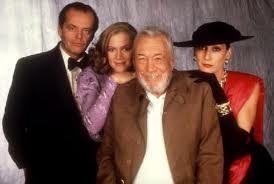
The director and stars of “Prizzi’s Honor”: Nicholson, Turner, Huston, and Huston
While I presented my case for making “juror” a profession, I took you on my December 8, 2012 drive in the Marin Headlands and my walk and visit to Point Bonita Lighthouse. Click for the full images, especially the one with the white sea lion. As many nature documentaries as I’ve seen, I had never seen or heard of a white/albino sea lion before I saw this one.
Here’s the lighthouse website: http://www.nps.gov/goga/pobo.htm









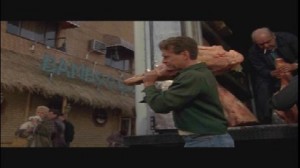
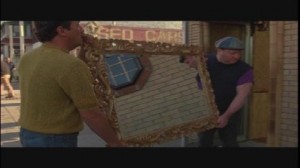
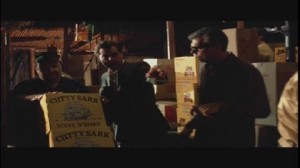
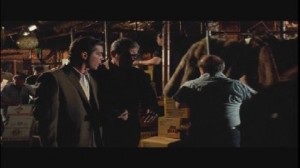
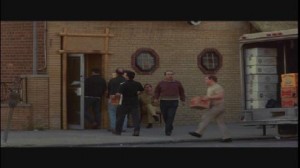
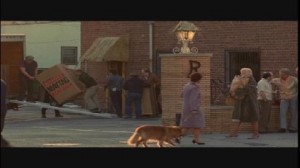
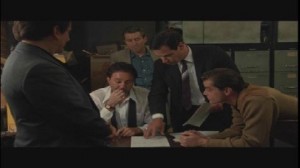
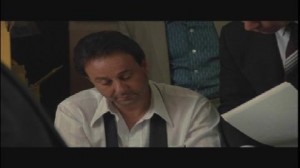
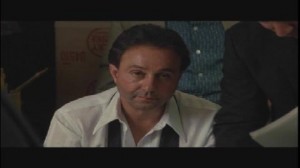
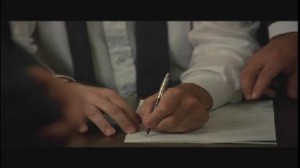
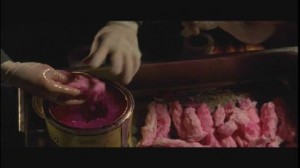
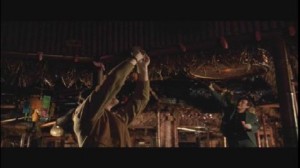
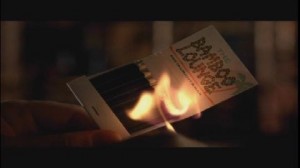
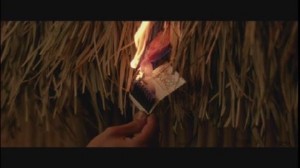


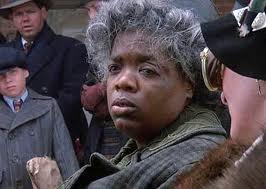

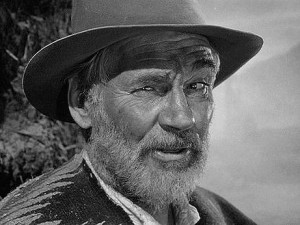
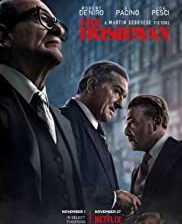

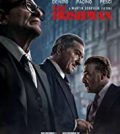
Another great article Dan. A lot of things to consider and great points!
I agree with the concept of “professional jurors”. It might help eliminate A LOT of injustices in this country.
As to the town of Sanford,FL, let’s not forget it was known as a hotbed of “crackers” for many years. It was also known for litterally “running out of town” baseball great Jackie Robinson because he was black.
The Sanford police department, the Sanford D.A. who made a half-ass, disastrous prosecution effort, judges, jurors, killer, etc… all fit in nicely within the “wonderful” history of that town.